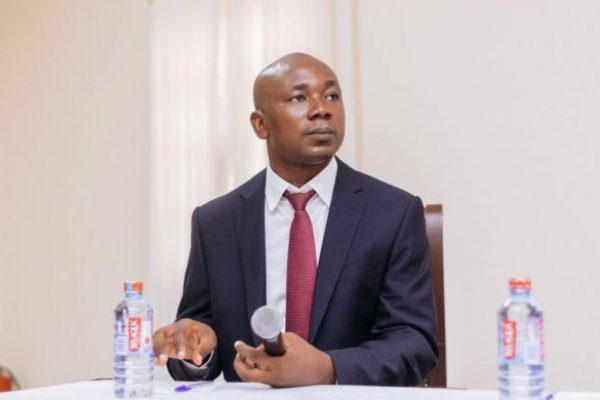
Audio By Carbonatix
Economist and professor of finance at the University of Ghana, Prof Godfred Bokpin, has asserted that the cedi can only be stabilised temporarily from further depreciation in its performance against major foreign currencies but continue slipping as has been the trajectory for decades.
He attributes this trend to the lack of a robust macroeconomic policy support for the cedi.
Speaking on Joy FM's Super Morning Show on Monday, May 13, Prof Bokpin explained that the cedi has persistently suffered depreciation since its introduction in July 1965.
He anticipates intermittent periods of relative stability but underscores the likelihood of continued depreciation, even with optimal economic measures in place.
“If we do everything right we will still expect that the cedi will depreciate by a certain margin given the relative strength of the economy.
“It's a shame that we haven't been able to provide the cedi with the necessary support through sound macroeconomics policy making, including responsible fiscal management and prudent monetary policy.
“As a result, we've denied the cedi some basic rights and then expect it to perform magic, when in reality, the cedi's behaviour is a reflection of weak underlying fundamentals”explained.
In referring to the Vice President, Dr Mahamudu Bawumia's popular phrase about the cedi's depreciation, Prof Bokpin argued that the exchange rate will expose the currency as long as the fundamentals of the economy remain weak.
Prof Bokpin mentioned that in 1964, Ghana had inflation of less than 1%. At that time, Ghana did not have its national currency and used the British West African pound, limiting its monetary control.
He said even after gaining independence, printing currency remained out of reach, until in July 1965 when the cedi was introduced. However, inflation has been a continuous challenge since then.
As of today, Monday, May 13, one US dollar averages GH¢14.5 according to Joy Business.
Analysts are envisaging a continuous weakening trajectory of the local currency as foreign exchange demand-supply disparity remains substantial.
They, however, anticipate improved liquidity conditions towards the end of quarter two of 2024 after the International Monetary Fund (IMF) board approves the second review of Ghana’s programme. This will lead to a tranche disbursement of US$360 million under the IMF programme.
Latest Stories
-
NSA introduces dual authentication system for 2025/26 enrolment exercise
1 hour -
Fuel prices to increase from Feb. 16, influenced by cedi’s depreciation
2 hours -
GNFS to launch automated fire safety compliance system to modernise regulation
2 hours -
NALAG president commends Local Gov’t Minister for payment of assembly members’ allowances
2 hours -
Is having a physical security operations center in your business worth it?
2 hours -
Asiedu Nketia recounts fierce political wars in Ajumako-Enyan-Essiam constituency
2 hours -
NRSA sets up committee to probe road crashes involving Toyota Voxy
2 hours -
Cocoa farmers decry the adverse impact of producer price cut on livelihoods
2 hours -
Families who lose relatives to ‘no bed syndrome’ must sue health facilities – Dr. Nawaane
2 hours -
Ghana Sports Fund: Dr. David Kofi Wuaku outlines vision for Youth Empowerment growth through sports
3 hours -
NUGS President urges sustainable digital governance
3 hours -
National Investment Bank kicks off Ghana Sports Fund with landmark seed donation
3 hours -
Two young siblings found dead in unsecured manhole
3 hours -
Cocoa Prices, Producer Prices, and the Smuggling Debate: What the data actually suggests
3 hours -
CRAG signs vehicle finance deal with Bank of Africa to boost fleet expansion
3 hours

